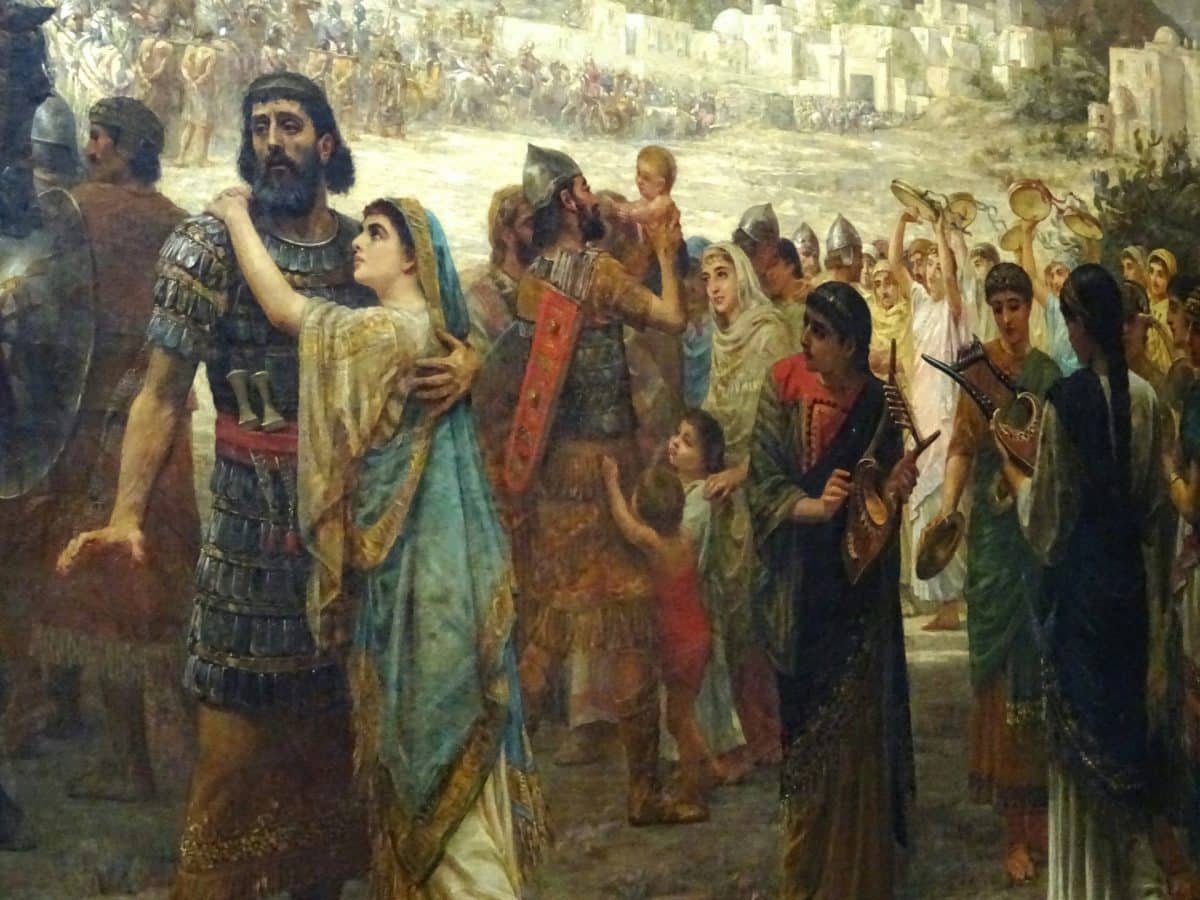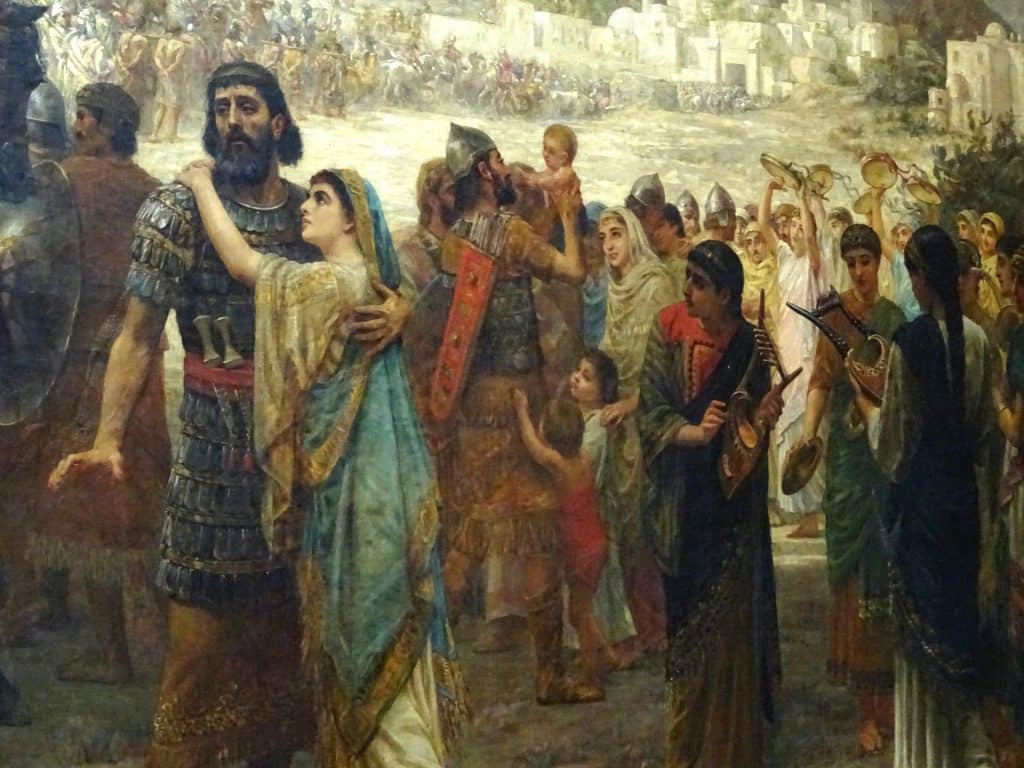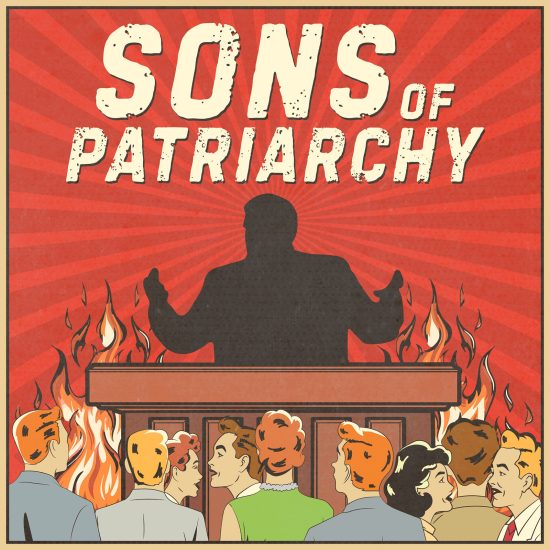

“Jephthah’s Vow; The Return” by Edwin Longsden Long. Public Domain Painting
Governors across the country recently started lifting coronavirus restrictions even as health experts warn it’s too soon to reopen. With the rashness of the biblical Judge Jephthah, many governors push ahead with their plans even though it means sacrificing lives.

Brian Kaylor
Who is Jephthah? Of the 16 leaders of the Hebrew people we find in scriptures from Moses through Samuel, his reign of just six years is also among the shortest, and Jephthah doesn’t seem as well known or popular today as judges like Deborah, Gideon, and Samson. But perhaps most significantly about Jephthah’s story is the focus not on his greatness but his sacrifice of his only child due to a rash pledge.
We read about Jephthah’s moral bankruptcy in chapter 11 of Judges. As he started to lead the Israelites in Gilead to fight the Ammonites, he offered a vow to God: “If you give the Ammonites into my hands, whatever comes out of the door of my house to meet me when I return in triumph from the Ammonites will be the Lord’s, and I will sacrifice it as a burnt offering.”
The text doesn’t tell us what the “whatever” was that Jephthah expected to greet him. Perhaps an animal, or maybe an enslaved person. But he did express shock and sorrow that his daughter first came out as he returned.
At this point Jephthah had two options, though the text doesn’t explicitly mention one. He could do what he did — follow his rash words and kill his own child. Undaunted, Jephthah went ahead with his announced plan even though it meant sacrificing his daughter.
But another option existed. He could’ve admitted the error of his pledge and made a different decision in light of new information. I believe God would’ve looked favorably upon Jephthah for breaking that rash and unnecessary vow.
Jephthah didn’t need to cut a deal with God to win over the Ammonites. God already vowed to lead the Hebrew people to victory — and proved this time after time with other judges. The daughter’s arrival in the story could’ve sparked a chance for Jephthah to repent from his pledge. Maybe then he could’ve learned to trust God instead of relying on the ability to compromise with God like one would in negotiations with a political ally.
Unlike Abraham, who learned that God doesn’t desire human sacrifices like the gods of other nations, Jephthah marched ahead with his plan. He defeated himself in a way the Ammonites couldn’t. Later in the life of the ancient Israelites, people again sacrificed their children. They did so in fire in the Valley of Hinnom (also known as Gehenna, or — as it’s often translated in our Bibles — hell). Like those later Israelites, Jephthah created his own hell on Earth.
Today, a new generation of Jephthahs once again marches ahead with a rash plan even if it means sacrificing innocent lives. Despite the fact that we’ve not yet flattened the curve of the coronavirus pandemic in the United States, several governors vowed to reopen. Some states started lifting restrictions last week, and more will over the next week.
However, according to the data modeling by the Institute for Health Metrics and Evaluation at the University of Washington, no states should be ready to reopen yet as the outbreak hasn’t sufficiently reduced yet. Reopening too early could spark a new wave of infections and deaths. Undaunted, our Jephthahs continue ahead with their announced plans even though it means sacrificing lives.
Governor Brian Kemp in Georgia led the nation in reopening. He announced the plans April 20 to allow numerous businesses — including fitness centers, bowling alleys, hair salons, and tattoo parlors — to start reopening just four days later. He made the announcement on the day with the state’s highest number of reported deaths from coronavirus. Two days after the announcement, President Donald Trump criticized his fellow Republican for reopening too soon. Additionally, clergy in Georgia from across the theological and political continuums criticized the move and urged churches not to reopen under the plan. Undaunted, Governor Jephthah went ahead with his announced plan even though it means sacrificing lives.
Governor Mike Parson in Missouri declared weeks ago that the state would reopen on May 4, becoming more forceful in declaring this with each passing day. Nothing, it seems, will stop his plans. Not the fact that the daily number of deaths from coronavirus in the state continues to grow. Not the call from clergy in hard-hit St. Louis urging him to reconsider and asking churches not to reopen yet. Undaunted, Governor Jephthah continues ahead with his announced plan even though it means sacrificing lives.
Why would governors press ahead despite the evidence? Lt. Governor Dan Patrick in Texas explained the mindset: “There are more important things than living.” Perhaps Jephthah whispered those words to his daughter as he held the knife above her. Or perhaps the whisper came from the snake in the nearby tree.
Regardless, Texas will reopen starting May 1 even though reported coronavirus deaths haven’t yet fallen. Undaunted, Lt. Governor Jephthah continues ahead with his announced plan even though it means sacrificing lives.
And while the text in Judges doesn’t say if anyone criticized or protested Jephthah’s plan, we have that freedom in our society. Love of our neighbors demands we not follow our political Jephthahs in a rash move to reopen.
Most churches suspended in-person services even without their governors demanding that, and so churches can also ignore when their Governor Jephthah urges them to reopen. Georgia and Texas exempted churches from mass gathering bans and Missouri did so for weeks (until switching after prodding by Word&Way), and still more than 90 percent of churches voluntarily suspended worship services to help save lives.
So, let’s do the same now. Let’s not join our politicians in sacrificing the vulnerable. Just because a Governor Jephthah made a rash vow to reopen doesn’t mean we must also turn our pews into bloody altars in the Valley of Hinnom.






